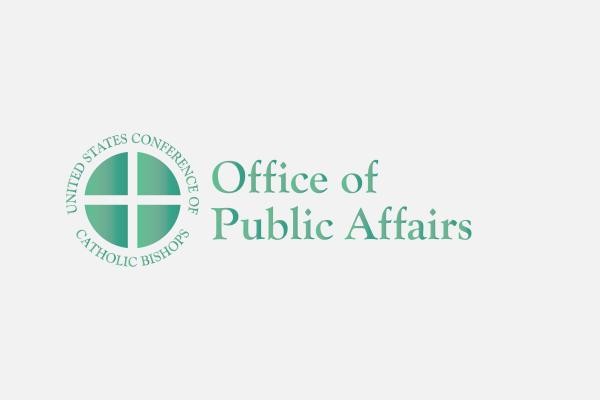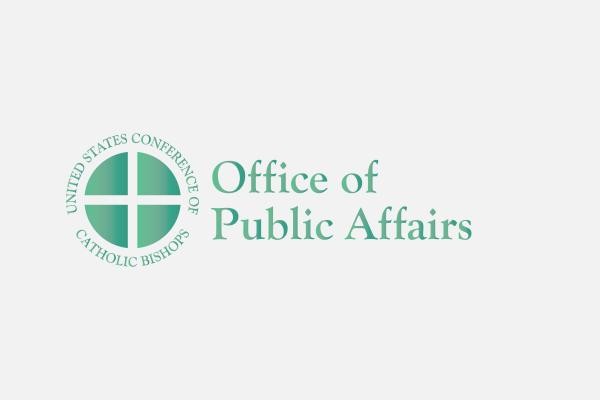Rabbinical Council of America/Union of Orthodox Jewish Congregations of America and BCEIA Issue Joint Statement on School Choice; Discuss Statements by Iran, Threats to Christians in Middle East
WASHINGTON(November 1, 2006)—Following an October 25 meeting in New York, the Consultation of Delegates of the Rabbinical Council of America/Union of Orthodox Jewish Congregations of America and the Bishops' Committee for Ecumenical and Interreligious Affairs (BCEIA) of the United States Conference
WASHINGTON(November 1, 2006)—Following an October 25 meeting in New York, the Consultation of Delegates of the Rabbinical Council of America/Union of Orthodox Jewish Congregations of America and the Bishops' Committee for Ecumenical and Interreligious Affairs (BCEIA) of the United States Conference of Catholic Bishops issued a joint statement on school choice.
The statement takes up the various constitutional approaches being considered in various states to provide equitable means of addressing the needs of the widest range of children, especially low income families in various religious communities. (The joint statement appears below).
The meeting took place at America House, a residence of the Society of Jesus. It continued a series of twice-yearly meetings between delegates of the Catholic Church and Orthodox Judaism that began in 1987 following the visit of Pope John Paul II to the United States and his historic meeting in Miami with representatives of the American Jewish community.
Also discussed was a statement on marriage, which will be revised for approval at the next meeting. The Catholic delegates raised the question of the failure of the State of Israel to implement the Fundamental Agreement of 1993 that it made with the Holy See. The Jewish delegates promised to look into the issue and report back at the next meeting.
The group discussed the recent statement of the president of Iran calling for the destruction of the State of Israel. Participants were united in condemning the statement as unconscionable for any political leader, since it is tantamount to incitement to genocide. Recalling that Adolph Hitler similarly called for genocide against the Jews in Mein Kampf, and went on to perpetrate it, the group agreed that much more is needed to combat this than simple words of repudiation. Some argued that Iran should be isolated and ostracized on the world stage. Various options were discussed but none agreed upon by the group as a whole. Some members favored international sanctions. Others raised the question of whether a state committed to the annihilation of another state and its people could be seen as fit for membership in the United Nations. All agreed in urging moderate Muslim leaders around the world to join in the condemnation, and in the need for the prayers of all people of good will for the triumph of a pacific interpretation of Islam.
Concern was also jointly expressed for the threats facing Christians throughout the Middle East, especially in Iraq where an ancient Christian community is today in dire jeopardy, and in view of the violent attacks on Christians following Pope Benedict's remarks. Today, it is clear that a profound dialogue among Jews, Christians and Muslims is more necessary than ever before, to support those faithful Muslims who are resisting extremism and to bring together in peace (shalom/salaam) all the children of Abraham.
Jewish Participants: Rabbis Fabian Schonfeld (co-Chair), Joseph Karasick, Basil Herring, Tzvi Hersh Weinreb, Nathan Diament, and David Berger; Ms. Betty Ehrenberg. Staff: Mr. Howie Beigelman
Catholic Participants: Bishop William Murphy (co-chair); Msgrs. Robert Stern and Donald Beckmann; Revs. James Loughran, SA, Drew Christiansen, SJ, and Lawrence Frizzell. Staff: Dr. Eugene Fisher
Joint Statement on School Choice
October 25, 2006
By Delegates of The Rabbinical Council of America/Union of Orthodox Jewish Congregations of America and the United States Conference of Catholic Bishops
Western Civilization has long recognized the fundamental right of parents, as well as their sacred responsibility, to guide the upbringing and education of their children. Almost a century ago, the United States Supreme Court recognized that "parents � direct the upbringing and education of [their] children."
The communities we represent accept this responsibility with the utmost seriousness. We have committed ourselves and our institutions to creating educational environments that strive to imbue in our children the highest moral values, a depth of knowledge, and a proficiency in skills enabling them to support themselves and their families, and to benefit society at large.
Many Catholic and Jewish parents are committed to providing their children with this education, and struggle mightily to do so. Others, including those who may not be members of our faith communities, wish to send their children to schools where they can receive the best possible education, but cannot afford the cost. We join together to call upon our elected and appointed officials to implement policies which will empower all parents to choose schools for their children which they believe best serve each child's own individual, educational needs.
The Supreme Court has recognized that government funds may flow to religious institutions as a result of the private and independent choices made by individuals upon the basis of their own beliefs. Thus, initiatives facilitating the flow of such funds and services can enhance the Constitution's promotion of the free exercise of religion while remaining mindful of neither establishing nor endorsing religion.
Moreover, at this time in our nation's history, "school choice" is an issue of justice issue. For too many years, the United States has been aware that serious inequalities trap low-income children in schools whose infrastructures are crumbling and whose environment is dysfunctional.
"School choice" under its various forms ensures that the poor will be provided with the opportunity to direct the education of their children without regard to their economic status.
"School choice" policies also vest parents of all walks of life with the power to educate their children as they see fit.
Therefore, we, delegates of the United States Conference of Catholic Bishops and the Rabbinical Council of America/Union of Orthodox Jewish Congregations of America are committed to working in partnership with each other, elected officials and all others who share our common commitment to securing greater educational opportunity for all our nation's children.


